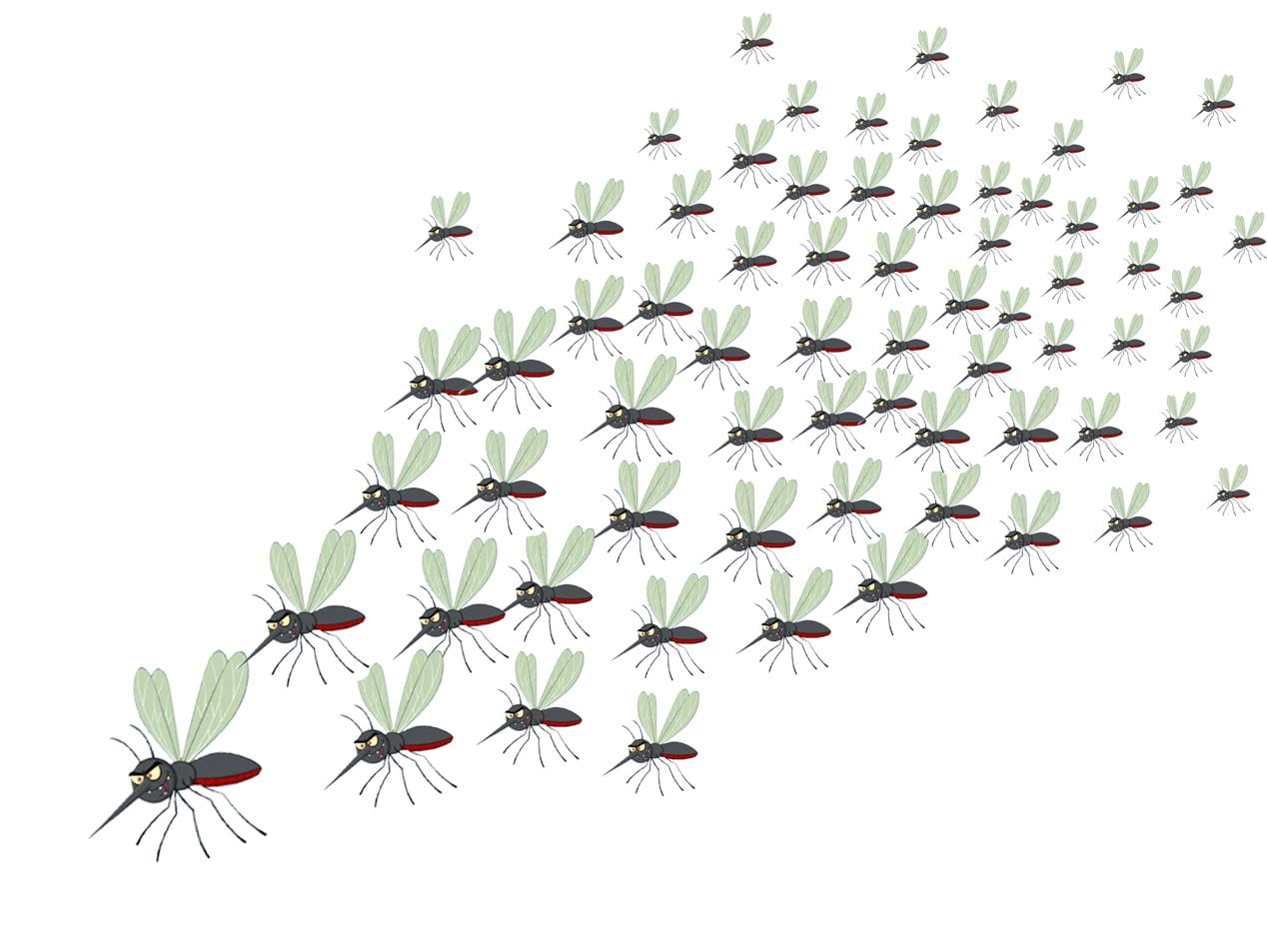
Variability in mosquito host-seeking ability
Words and images: Meng-Jia Lau
Behaviour is one of the most complex study areas in biology because it involves a combination of many factors that are often quite variable.
In mosquitoes, host-seeking is the behaviour of females seeking a blood meal which provides the extra protein they need in order to lay eggs. The biting process not only makes people feel itchy, but it also allows mosquitoes to transmit arboviral diseases. A nuisance and a health problem!
We do not fully understand the host-seeking behaviour of mosquitoes: There is no simple answer to how mosquitoes find a human host, and why mosquitoes seem to prefer some people over others. We know mosquitoes can use long-distance olfactory (smell) cues to detect a host, including the CO2 we exhale and a variety of body odours such as sweat and urine. At close distances the ability to detect body heat and moisture determine whether the mosquito can find a host.
Recently, we tested the host-seeking ability of Aedes aegypti mosquitoes when they are infected with Wolbachia or when they have been maintained under laboratory conditions over a very long time. We performed experiments under semi-field conditions to test host-seeking in the most realistic way possible. The mosquitoes were released at one end of the enclosure and then re-captured as they land on human experimenters (us) at the other end. In our experiments we didn’t find substantial differences between the treatments we compared. Instead we found large variation between our experimental replicates, making it harder to find differences between the treatments (fresh publication in The American Journal of Tropical Medicine and Hygiene here: Lau et al. 2019).

Host-seeking ability of 5 d old wMel-infected, wAlbB-infected and uninfected Ae. aegypti females in a semi-field cage. Cumulative landing proportions of females on human experimenters are shown across all replicates. Lines represent means and error bars represent standard errors.
Many factors can influence mosquitoes’ desire, which include:
- Physiological conditions such as fertility status, age and nutrition.
- Sugar feeding—most female mosquitoes will take sugar before they will take blood, and some strongly prefer sugar over blood or rarely bite until after a sugar meal or until after several weeks of sugar feeding.
- Environmental factors such as rain, shade, wind and temperature also play influential roles in host-seeking behaviour.
With such a large number of factors effecting host-seeking behaviour in mosquitoes, it is no wonder it is difficult to detect changes due to a single factor. At least our experiments indicate that the Wolbachia infected mosquitoes can still find human hosts quite effectively – essential for their success when in field releases designed to reduce disease transmission.
Lau, M.-J., N. M. Endersby-Harshman, J. K. Axford, S. A. Ritchie, A. A. Hoffmann, and P. A. Ross. 2019. Measuring the Host-Seeking Ability of Aedes aegypti Destined for Field Release. The American Journal of Tropical Medicine and Hygiene.